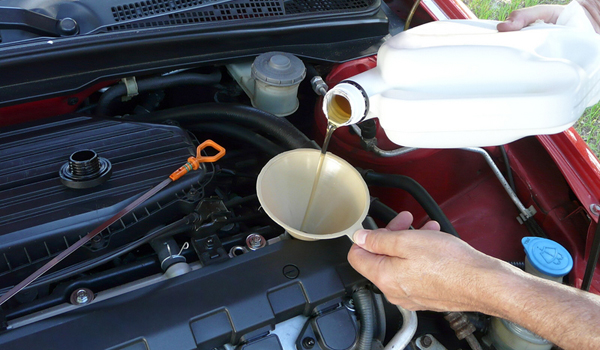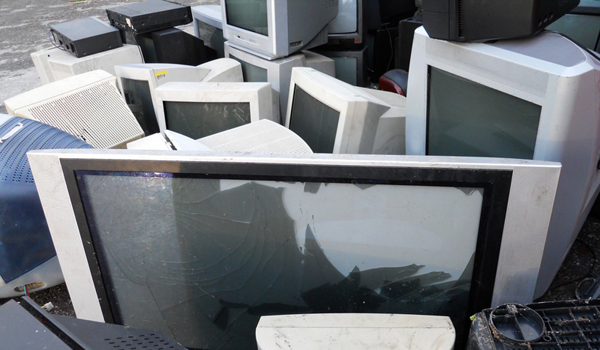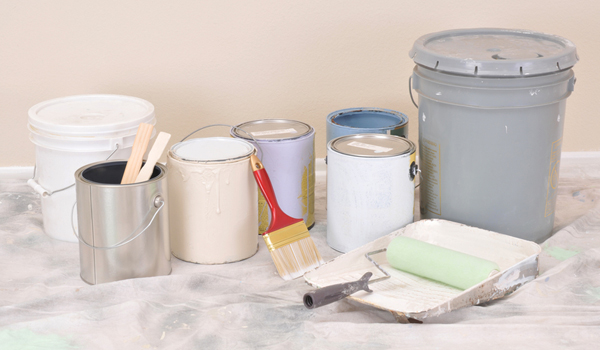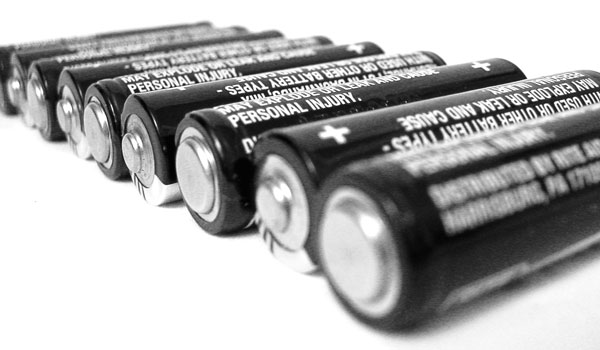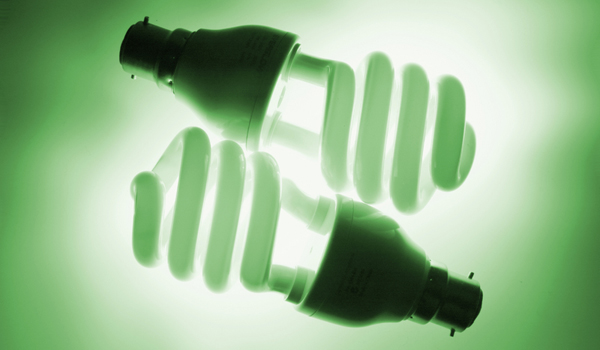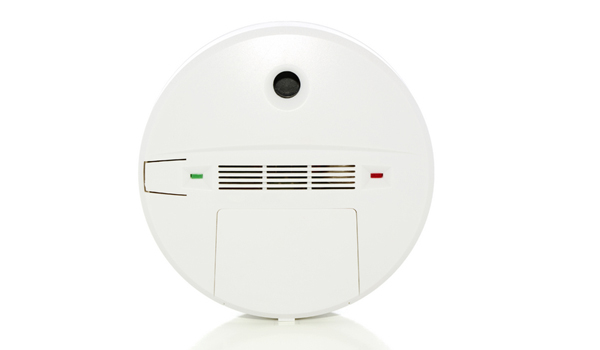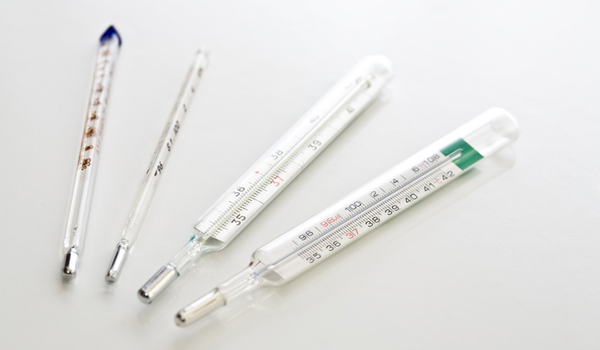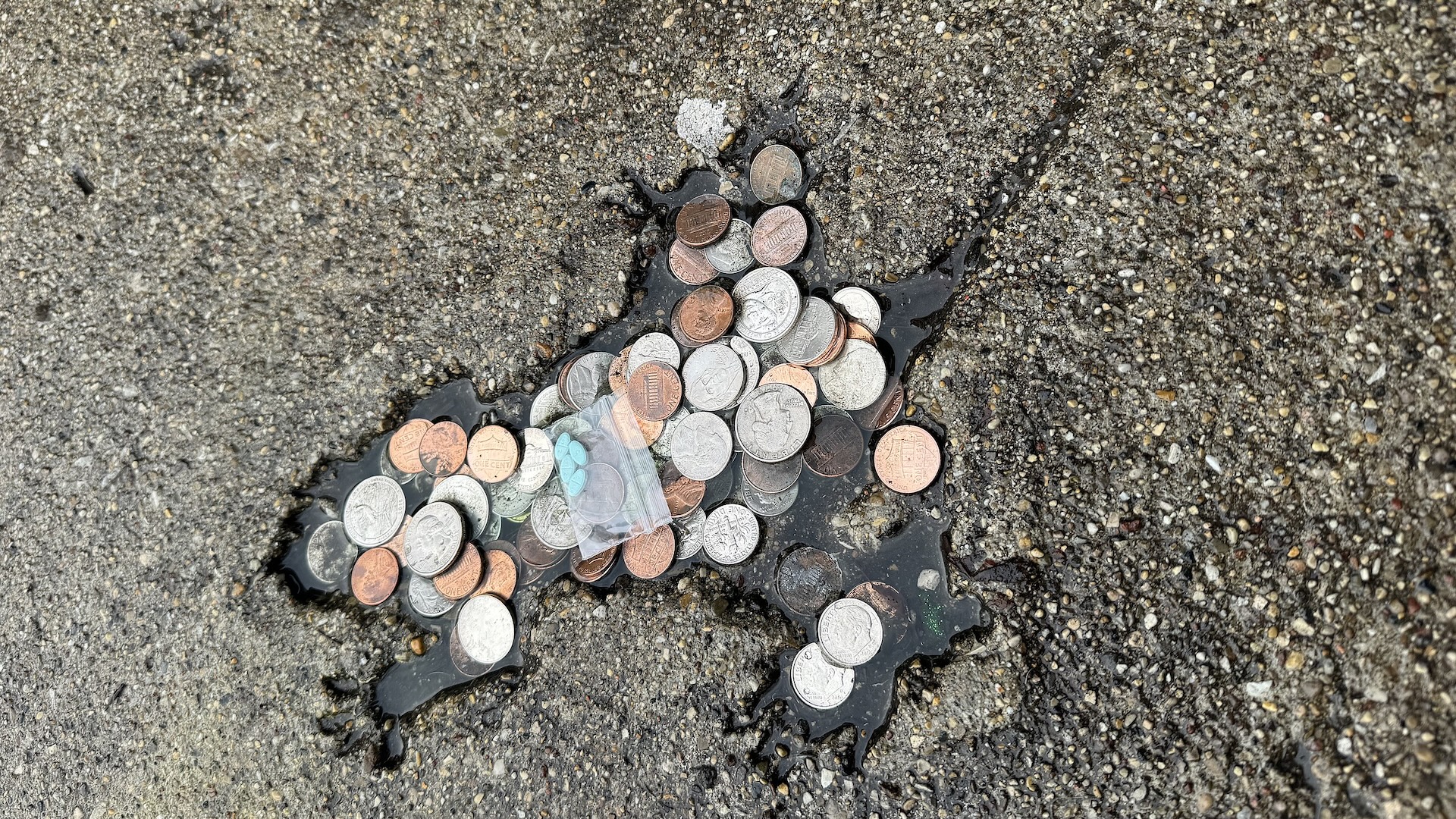7 Everyday Toxic Things You Shouldn't Toss in the Trash
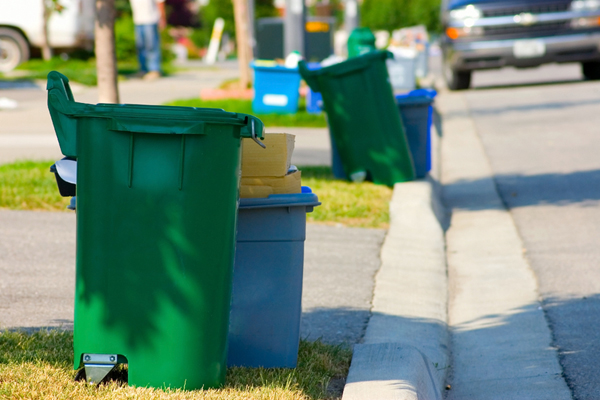
Not sure what to do with your old plasma TV? Leaving it on the curb for the garbage man to pick up may seem like the most reasonable thing to do, but it's definitely not the most environmentally-friendly option. We'll show you how to properly get rid of household trash so that you don't leave a toxic -- or even downright radioactive -- footprint.
From paint to lightbulbs, Life's Little Mysteries has rounded up the top seven things people shouldn't throw in the trash -- but often do.
#7 Motor oil
In most states, it's illegal to pour motor oil down the drain -- or even on the ground.
That's because pouring motor oil down the sink or toilet can diminish the effectiveness of waste water treatment process. Motor oil spilled into storm drains or on the ground can also contaminate waterways, harming aquatic life.
"One gallon of motor oil can contaminate 1 million gallons of freshwater," said Jennifer Berry, a representative for Earth911.com, a government-recommended website that provides directories for finding local recycling and disposal resources.
The only proper -- and legal -- way to get rid of motor oil is to place it in a clean plastic container with a tight lid and bring it to a location willing to take it off your hands, such as recycling centers, car service stations and automotive stores.
Get the world’s most fascinating discoveries delivered straight to your inbox.
One important note is that used motor oil shouldn't be mixed with anything else -- such as paint, gasoline, solvents and antifreeze -- because that will render it unsuitable for recycling.
#6 Electronics
Old TVs, DVD players, VCRs, cassette decks, CD players, cell phones, alarm clocks, video cameras, desktop computers, laptops, printers, video game consoles, iPods … how many of these electronic waste (e-waste) items do you have stashed away in your basement, attic or storage unit?
"E-waste in general contains heavy metals such as cadmium and lead, meaning that your electronics should not go in the trash," Berry told Life's Little Mysteries. "Although e-waste accounts for only 1 to 4 percent of municipal waste, it may be responsible for as much as 70 percent of the heavy metals in landfills, including 40 percent of all lead."
The most environmentally friendly way to dispose of e-waste is to donate it for reuse or drop it off at a recycling center. The EPA website offers many e-waste reference tools, from directories of local and government-supported drop-off centers to manufacturers' mail-in recycling and trade-in programs.
Recycling your old cell phone isn't just a way to be green for the environment; it can also put some green in your wallet. Companies such as YouRenew.com, Gazelle.com and Flipswap.com will pay you to mail them your old e-waste.
#5 Paint
Oil-based paints, coatings, stains, varnishes, paint removers and strippers qualify as household hazardous waste (HHW) because they contain chemicals that can be harmful to humans, animals and the environment. HHW items should never be disposed of in the trash or down the drain.
Full cans of paint should be returned to the point of purchase, or you can donate excess paint to a school, theater group or non-profit agency such as Habitat for Humanity. Take any leftover oil-based paint products to an HHW collection facility in your area, which you can locate on Earth911.com or by calling 1-800-CleanUp.
Latex (water-based) paints are not considered hazardous, so lidless, dried-out cans of the stuff can be disposed of with regular trash. If you have 1 inch or less of leftover latex, open the lid to dry it out, away from children and pets. Larger amounts of latex paint can be dried out by using waste paint hardener or by mixing it with kitty litter. You can place empty metal paint cans in your recycling bins.
#4 Batteries
Different types of batteries have to be disposed of in different ways, but none of these include tossing them in the recycling bin. Rechargeable batteries (including nickel cadmium, nickel metal hydride, small sealed lead acid and lithium ion batteries) can be recycled at participating retail collection points, which can be found at stores including Ikea, Walmart, Staples and Radio Shack.
Alkaline and zinc carbon batteries should be dropped off at an HHW facility. Watch batteries, which contain silver oxide, can be recycled at many jewelry and watch stores. They can also be given to an HHW center, as can the lithium batteries commonly used in portable electronic devices such as PDAs, cameras and remote car locks. Another type of battery that should be deposited at an HHW facility is a zinc-air battery, which is used in hearing aids.
Lead acid automotive batteries contain corrosive and toxic chemicals that are very harmful to the environment, making them illegal to discard in your garbage or recycling bin. Instead, bring your car battery to the store when you buy a new one -- retailers are required to take the old battery.
For more information about where to drop off batteries, call 1-800-8-BATTERY.
#3 Light bulbs
Fluorescent light bulbs and compact fluorescent light bulbs (CFLs) -- while much better for the environment than regular light bulbs -- contain a miniscule amount of mercury (about 5 milligrams) that is released when the light bulb is broken.
For this reason, all florescent bulbs should be taken to an HHW facility. Locate one near you on Earth911.com. CFLs can also be dropped off at any Home Depot or IKEA store.
#2 Smoke detectors First, you need to determine what type of smoke detector you have. Ionization chamber smoke detectors (ICSDs) contain a small amount of ionizing radiation in order to detect the presence of smoke. Because of this radioactive material, ICSDs are categorized as a hazardous substance by the Fire Protection Agency. For this reason, it's extremely important to properly dispose of old smoke alarms.
After removing its batteries -- see #3 for how to get rid of those -- mail the ICSD back to the manufacturer. The address of the supplier is usually listed in the product warranty or user's manual. Send it by ground delivery, not air, because there are laws restricting radioactive materials on airplanes. You can also find a drop-off location or HHW event in your area if the manufacturer will not accept the unit.
Photoelectric smoke detectors, which use a photo sensor and light beam to detect smoke, do not contain radioactive material and can be taken to any electronics recycling facility (see #5).
Dual or combination smoke detectors have both ionization and photoelectric smoke sensors, so they do contain a tiny amount of radioactive material and should be disposed of in the same way as ICSDs.
#1 Mercury thermometers
Those old-school glass thermometers that mom used to take your temperature with may have been edged out by electronic thermometers, but many households still have these relics lying around.
The average mercury thermometer contains 500 milligrams of mercury, which can become a health hazard if the thermometer is accidentally broken. Mercury is a neurotoxin that especially poses serious health risks to pregnant women and kids because it can harm an unborn baby or young child's developing nervous system. This potential danger has caused several states, including New York, California and Connecticut, to ban the sale of mercury-fever thermometers.
To get rid of your old thermometer, use the EPA's website or earth911.com to find household hazardous waste collection programs in your community. Some areas even offer exchange programs that will trade you a new electronic thermometer for your old mercury one.
This story was provided by Life's Little Mysteries, a sister site to LiveScience.
